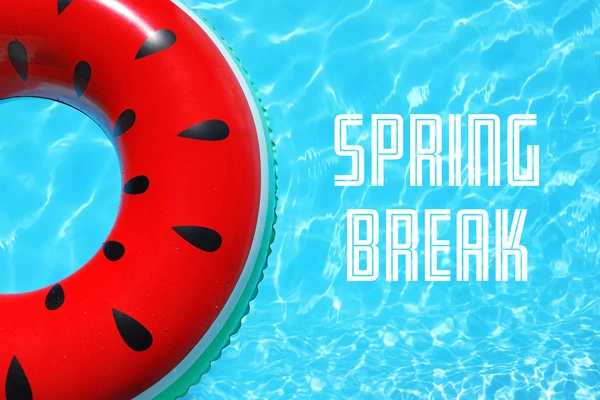1. Set your language goals
Before jumping right into learning a new language, you should first a goal for what you want to achieve through the language learning process. Having long-term and short-term goals will help you keep track of your progress and your improvement over time, as well as keeping you grounded to focus on achieving the goals.
Learning a new language is exciting but challenging at the same time, because you will start in some cases from learning a completely new alphabet, to getting familiar with the vocabulary that you will use in further conversations. Therefore, we suggest that you should follow the SMART goals rule, which stands for:
- Specific: Well defined, clear, and unambiguous
- Measurable: With specific criteria that measure your progress towards the goal accomplishment
- Achievable: Not impossible to achieve
- Realistic: Within reach, realistic, and relevant to your purpose
- Timely: With a clearly defined timeline, including a starting date and a target date, to create urgency.
After following through with these criteria for the goal, you can set a specific timeline and plan for learning. An example of a long-term goal is “After 3 months of studying French, I want to be able to get better at a 10-minute conversation with a native speaker” or “I want to be able to read a children’s novel in French”. An example of a short-term goal is “By the end of this month, I want to master basic French vocabulary, and learn 5 new French conversational words every day”.
By narrowing down your long-term goals to short-term goals, you will develop an urgency for the learning timeline and actually push yourself to complete your short-term goals.
2. Choose the right instruction platform of preference
If you look up “Learn French online”, there are various online platforms for you to choose from. Depending on your preferences and learning goals, you can choose either in-person, live online class, or self-paced learning.
If you are interested in doing a live online class, we would recommend signing up for our language courses on the Aralia platform. We are currently offering three languages: Spanish, French, and Latin. These courses provide students with a thorough introduction to the languages, from grammar, vocabulary to speaking, reading, and writing skills. The courses are taught by native speakers and experienced educators in the assigned language. To learn more about the courses, you can read the details at the end of the article.
If you’re interested in self-paced learning, there are various online courses on YouTube and other learning platforms such as Duolingo that are easily accessible and correlate with your personal interest.
3. Practice, practice, and practice every day
The internet is a great platform to learn a new language as well as a platform to practice a language. As you move further into learning a new language, you should take all you have known into practice. You may feel uncomfortable at first, because you’re not fluent in the language. But the more you speak and practice, the more comfortable you will become with the new language. Speaking the language will help you build confidence and develop the left side of your brain.
If your current situation doesn’t allow you to be surrounded by foreign speakers and immersed in the language, you can definitely take advantage of the 6 websites we mentioned that will provide you with instant access to a native speaker. You don’t have to travel to the country for practice, because the internet allows us to be connected internationally and make friends from around the world.
4. Immerse yourself in the language’s culture
In addition to practicing every day, you can also immerse yourself in the language’s culture. Examples include watching videos in the target language, television shows, and listening to podcasts. In that way, you can switch back and forth between active and passive learning, which will not make you overwhelmed and stressed about information overload.
Each country has its own unique content, like Chinese with “Rap of China” on the Douyin platform (the origin of Tiktok), or Spanish with the popular show “Money Heist”. You will be able to entertain yourself by watching a new show and become familiar with the culture and the language at the same time. Even though you don’t understand a handful of words in the show, the goal of immersing in the culture is not to understand everything. The goal is to familiarize yourself with the sound, the tone, and the context of the language.
5. Test your knowledge
Learning a new language is certainly time-consuming and intensive. If you finally feel ready and confident with the language, it’s time to bring your knowledge to be tested. If your goal is to increase your proficiency over time, taking a test is a great way to check your progress and further motivate you. Testing can take on many forms, from an end-of-chapter knowledge test, to practice tests and actual standardized language examinations.
Learning a new language requires hard work and dedication, but you always have the support and available resources from the internet. By determining the suitable goals and the right platforms for you, you will be able to learn efficiently and achieve great results in the designed amount of time. Below, you will find information about Aralia’s available language courses in Spanish, French, and Latin.
This course provides students with an introduction to Latin language. We will cover the pronunciation of Latin letters and introductory grammar, which will give students a quick start to reading short Latin texts. This course is reading-focused, so students will learn to read and pronounce accurately but will not be engaging in spoken Latin conversations. Latin is an inflected language, meaning that the word endings change depending on how they are used in a sentence. Students will practice reading and comprehending short stories. Roman culture will be presented in the context of the short stories, and students may choose to read the optional English culture sections in the book to expand their understanding. Students should expect to spend time outside of class reviewing readings and memorizing new vocabulary and forms.
Spanish I is intended to introduce students to the fundamental ideas of Spanish study. Emphasis will be placed on pronunciation, basic grammatical structures, vocabulary, culture, and basic conversations. The course will also offer an elementary approach to listening, reading comprehension, speaking, and writing. Students will have various tools and techniques to assist them in gaining the necessary basic skills and confidence needed to acquire a foreign language. The course is taught by a native Spanish-speaking teacher.
This fun and interesting Intro to French course will cover all the necessary skills to be able to master the basics of the French language. In this class, you will learn to speak, start a conversation and read in French even if you have never spoken a word of French before.










